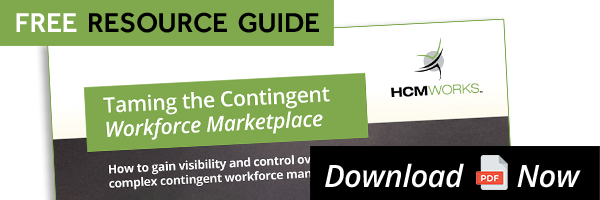In recent years the topic of employee misclassification has been a hot button issue in both the United States and Canada. With businesses wanting to cut costs during times of economic crisis, the problem of mislabeling employees as independent contractors is on the rise. Recently, this issue has impacted franchised companies and many high profile misclassification lawsuits have been circulating the news outlets. Because of this there may be those who think that this issue does not affect mid-market companies. In reality, companies definitely need to be thinking seriously about misclassification. Are your workers an integral part of your business? Do they provide special skills? Are they working permanently? Understanding this issue is vital to your company—here’s why.
Workers’ Compensation Premiums
One of the biggest differences between permanent employees and independent contractors is their access to premiums and benefits in the workplace. In Ontario, employers must pay workers’ compensation premiums as well as register with the Workplace Safety and Insurance Board. However, it is not required to pay these fees for contract workers, as they are not employed permanently. The repercussion for incorrectly classifying contractors is dire and can result in substantial fines, formal investigation, the payment of outstanding premiums with interest, and a provincial offense.
Deductions
Employers who fail to deduct income taxes and insurance premiums from workers’ wages face significant problems. In a situation of employee misclassification an employer is responsible for paying the unpaid taxes to the CRA or IRS in addition to penalties, interest, and any unpaid premiums. If you can’t afford to come up with these additional fees, you can’t afford to overlook incorrectly classifying an employee as an independent contractor.
Damage Claims
The last thing you need is a class action lawsuit on your hands. As we have seen in the media regarding large companies facing lawsuits, there is always the chance that dismissed contractors will come back with claims that they were in fact employees. You may not have even been aware that they fell under the employee category until you receive their complaint later. Contractors do not receive severance benefits, so if they take the position that they were employees all along they will want to be compensated fairly. If a court of law determines this to be the case, the employer will owe wrongful dismissal damages. Not only does this take a financial toll on the company but it is also a big hit to their reputation. Employee misclassification is an abuse of the law, worker status, and company image. Don’t fall victim to this problem due to lack of knowledge. If you work with contractors it is your responsibility to take this issue into consideration.
Benefits
There are many other benefits employees enjoy that contractors are not entitled to such as vacation pay, maternity leave, and overtime. In cases of employment misclassification the issue of benefits is usually the first to come up as indication of incorrect worker identification. To avoid these issues, employers need to be making thorough assessments of their workers and ensuring that they are being classified correctly. Understanding the difference between contract and full-time employee work is essential to preventing the problem. Classification can be tricky and you might find that some of your workers fall under a gray area, but it is important to do accurate research and ensure that there are clear distinctions between the two types of workers. This issue is certainly one that companies should be taking seriously, so make sure you do your homework and assess your business so that you can avoid any dilemmas with employee misclassification.



